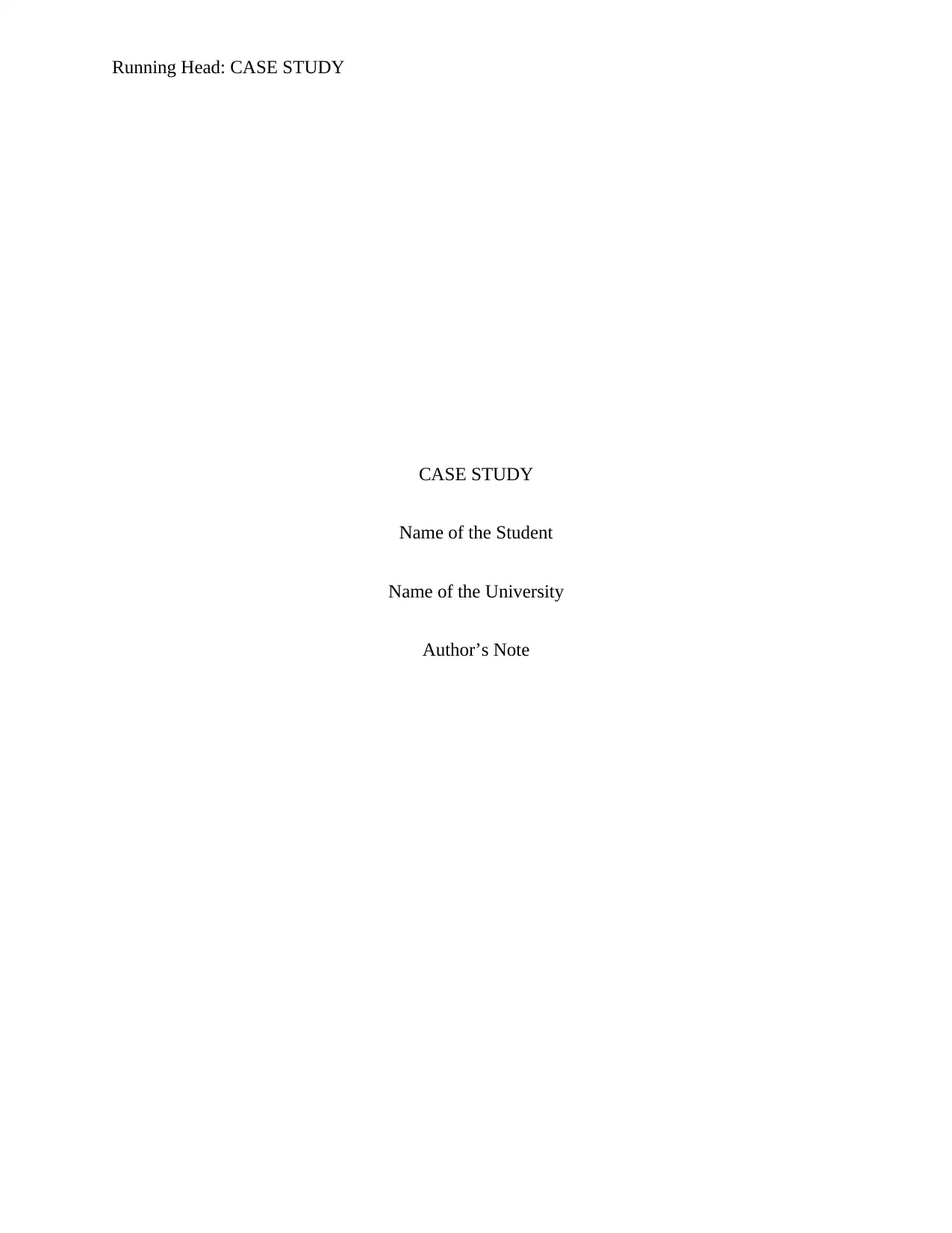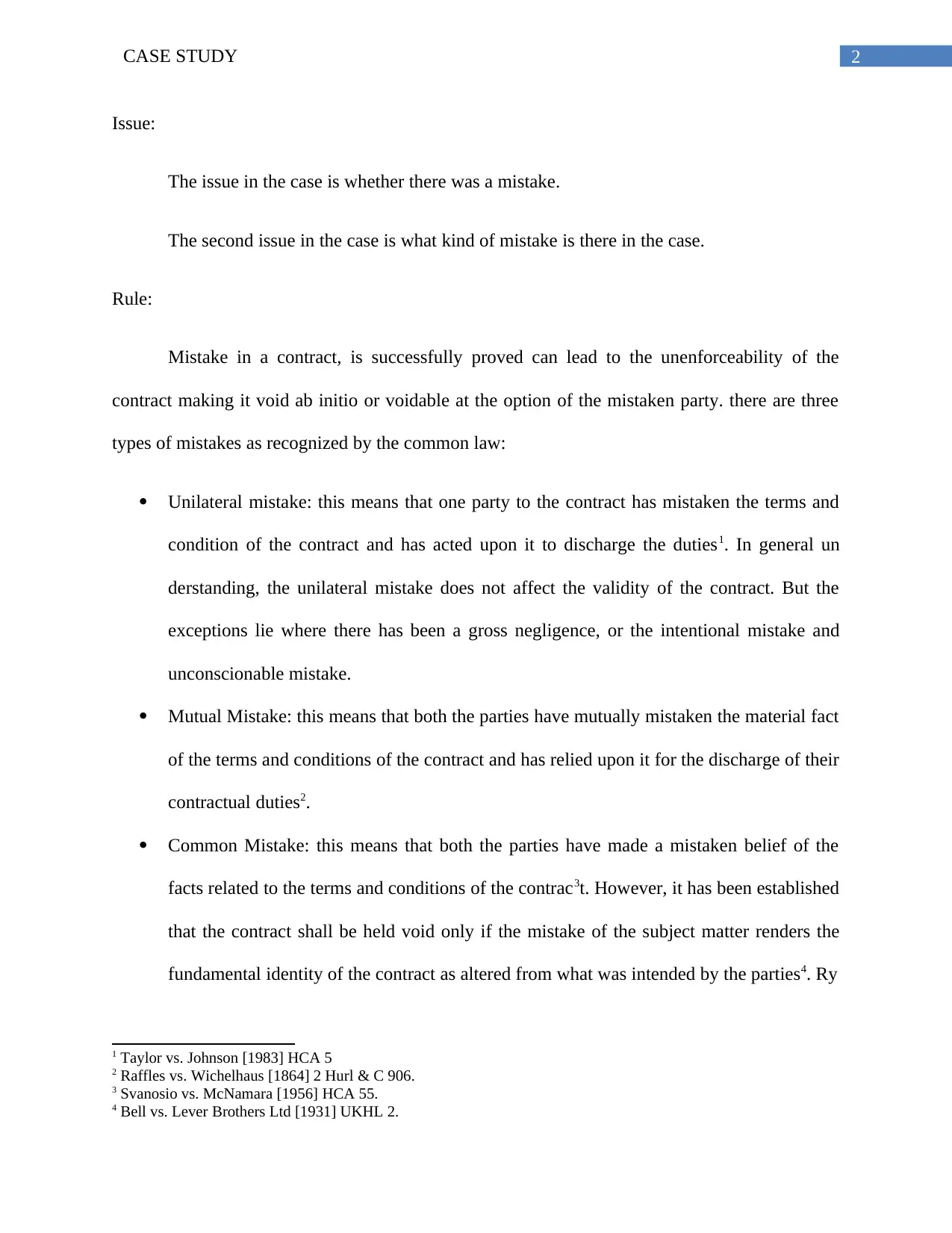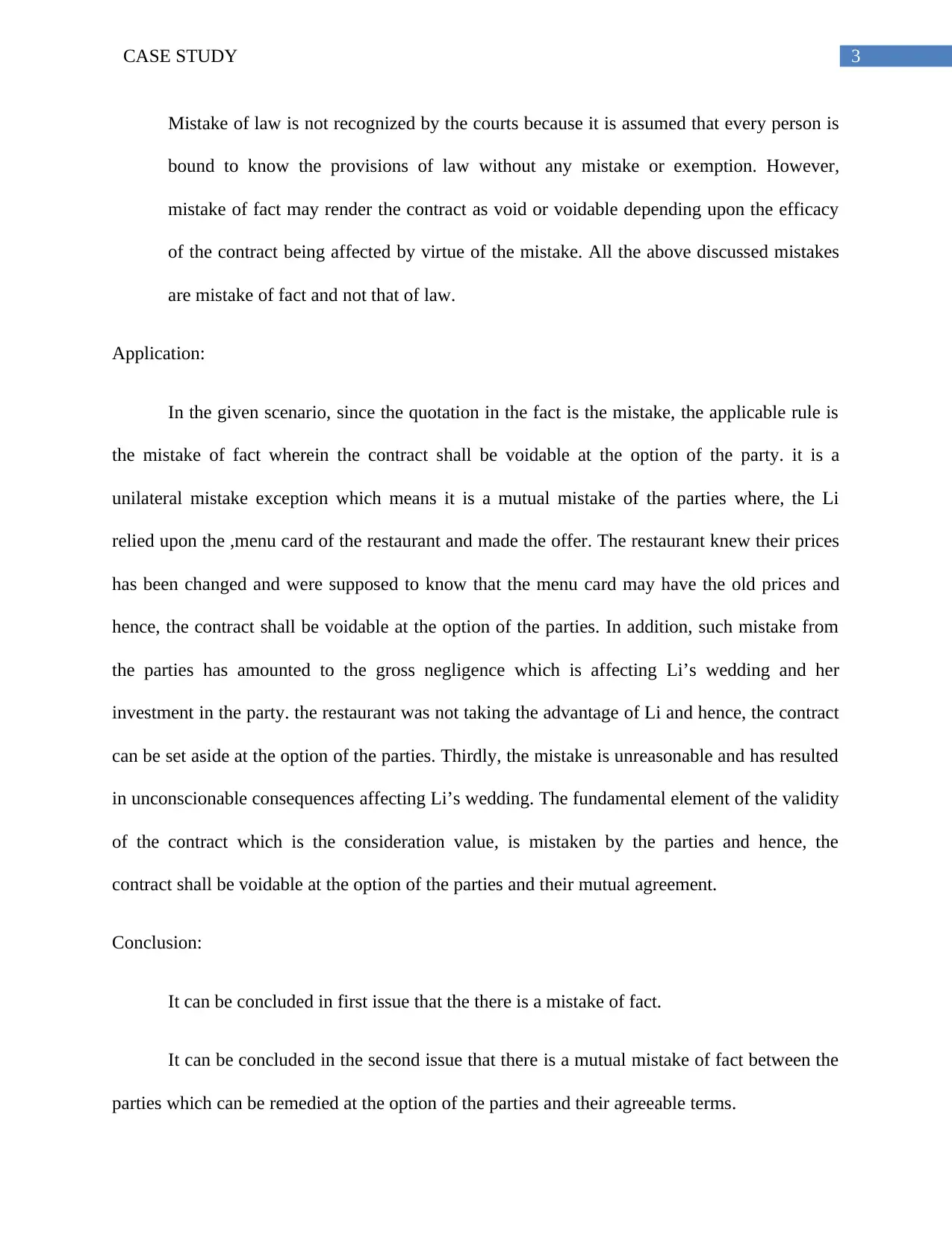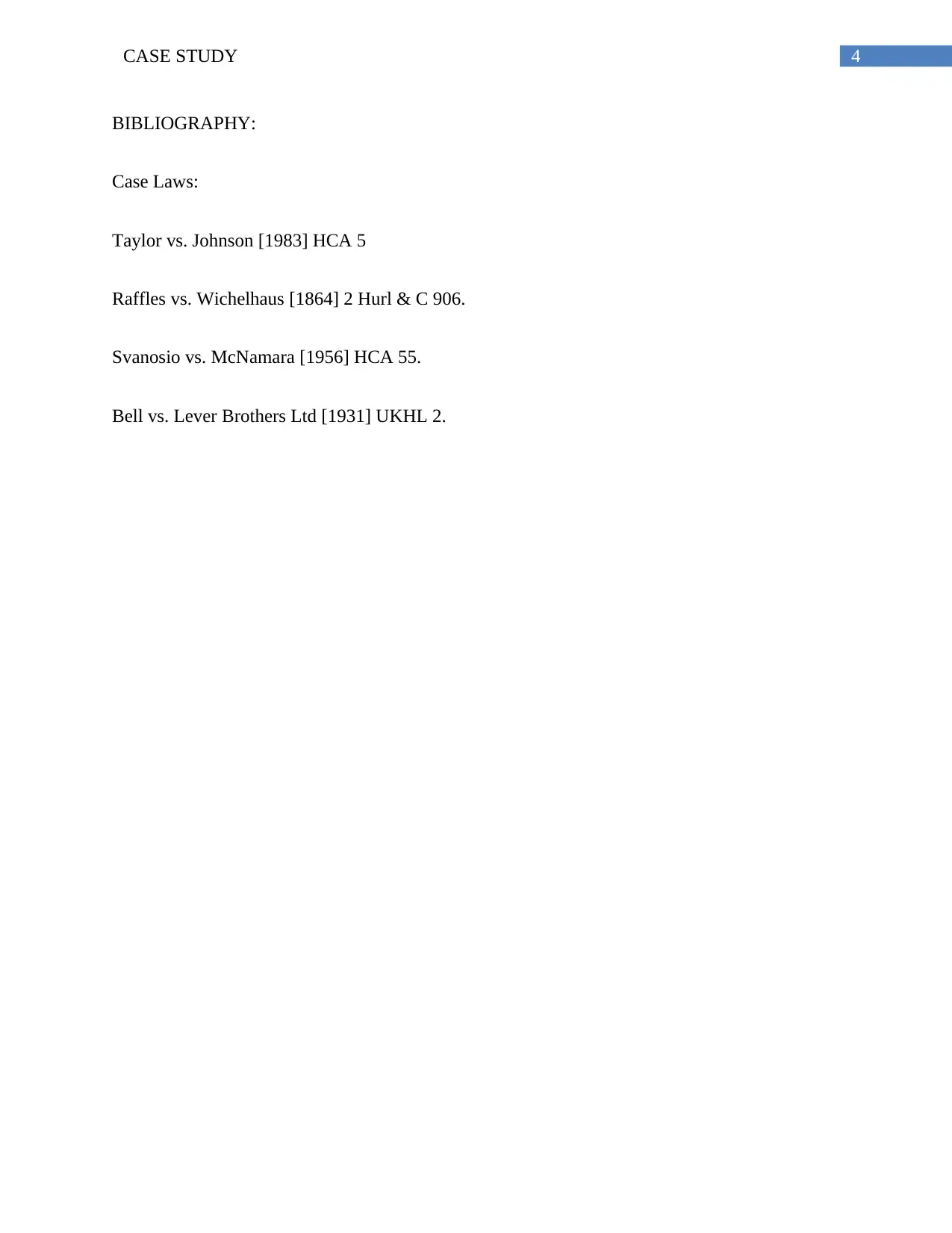Contract Law Case Study: Lame Duck Restaurant and Wedding Booking
VerifiedAdded on 2022/10/07
|4
|661
|50
Case Study
AI Summary
This case study examines a contract law dispute between the Lame Duck Restaurant and a customer, Li, regarding a wedding booking. The core issue revolves around a pricing error in the quotation provided by the restaurant. The assignment requires the application of the IRAC method (Issue, Rule, Application, Conclusion) to analyze the legal implications of the mistake. The student must determine whether a valid contract was formed, considering the types of mistakes (unilateral, mutual, and common) under contract law. The analysis includes evaluating the enforceability of the contract, the potential remedies available to both parties, and providing legal advice to Johnny, the restaurant owner. The solution considers the principles of offer, acceptance, and the impact of the pricing error on the contract's validity, referencing relevant case laws. The case study aims to assess the student's understanding of contract law principles and their ability to apply them to a real-world scenario, providing a comprehensive legal analysis of the situation.
1 out of 4










![[object Object]](/_next/static/media/star-bottom.7253800d.svg)